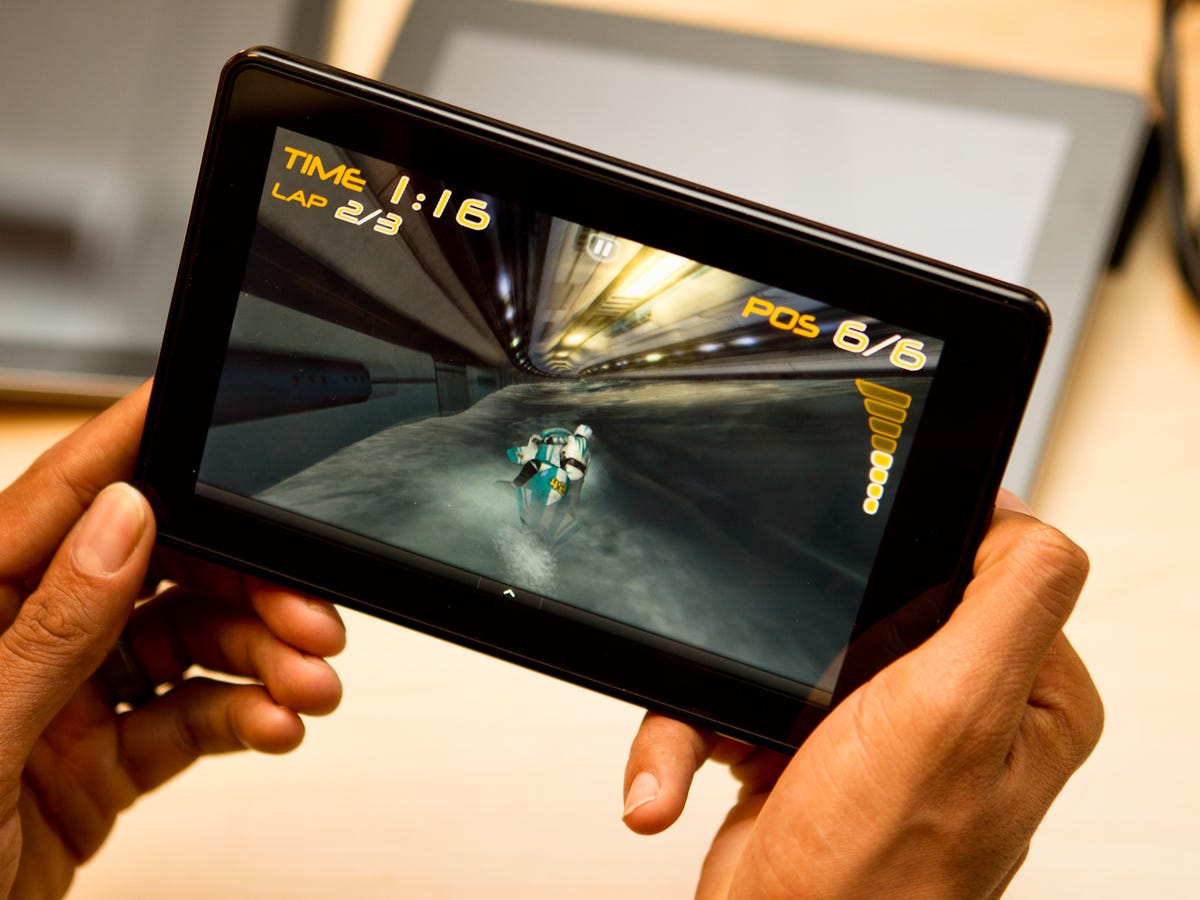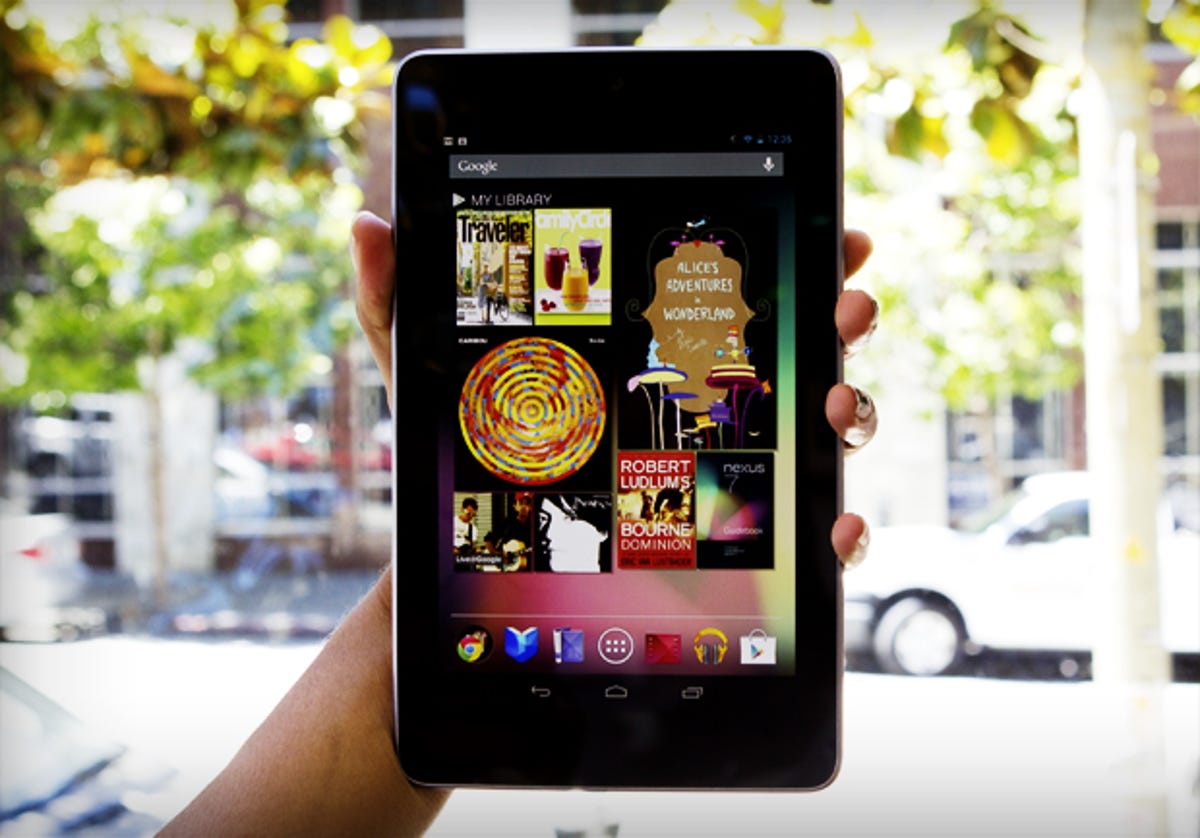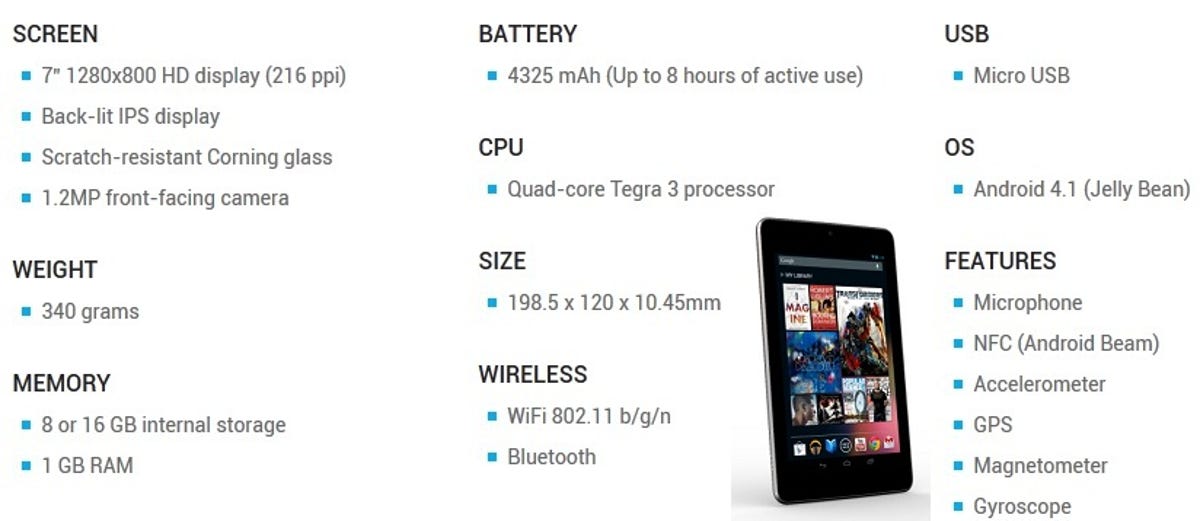Amazon opened a lot of eyes when it introduced the Kindle Fire last year at $199. Many people expected it to come out at $249, but Amazon surprised everybody with $199. Now Google’s done the same with its Asus-made Nexus 7, which, on paper anyway, offers the best specs for a 7-inch tablet at its price point, besting its closest competitors, the Kindle Fire and the 8GB Nook Tablet (you could also include the Samsung Tab 2 7.0 in this group, but it starts at $250).
Of course, specs aren’t everything, so before we declare the Nexus 7 the winner and new 7-inch champ, here’s the quick skinny on the pros and cons of each tablet.
Kindle Fire


CNET
Let’s start with one big caveat: the release of the Kindle Fire 2 is a certainty for the second half of 2012. Our source says that it may arrive as soon as July 31, with the current model dropping to $149. I actually expect the specs of the new Kindle to be almost identical to those of the Nexus 7.
But the first-generation Kindle Fire is what we have right now, so let’s take a look at its strengths and weaknesses.
Strengths: The Kindle Fire makes the most sense for Amazon Prime members (it costs $79 a year to be a member) who can stream an excellent selection of free video content. As a Prime member, you can also access free e-book loaners through Amazon’s Kindle Lending Library, including titles such as “The Hunger Games” and the entire Harry Potter collection. In our review of the Fire, we also gave high marks to Amazon’s user interface and we liked Amazon’s App Store for Android. There are some definite advantages to living in and embracing Amazon’s ecosystem.
Weaknesses: The Fire’s design is fairly generic (it’s basically a repurposed BlackBerry PlayBook); it doesn’t have such features as Bluetooth, a front-facing camera, built-in microphone, GPS, or volume control buttons; and its 1,024×600-pixel screen resolution doesn’t match the 1,280×800-pixel resolution of the Nexus 7, which also offers better pixel density. Also, this isn’t an open Android tablet; Amazon is running a heavily skinned version of Android and you can’t access Google’s Play app store, formerly known as the Android Market. Instead, you get the “curated” Amazon version — many, but not nearly all, of the same apps.
Read CNET’s review of the Kindle Fire.
Nook Tablet


Sarah Tew/CNET
Strengths: The Nook Tablet, which also comes in a 16GB step-up $249 model with a slightly faster processor, has a more distinct design than the Kindle Fire and it also has an expansion slot for more memory, a big plus. Overall, from a pure hardware standpoint, the Nook Tablet is a notch up from the Kindle Fire. It’s not a big notch, but it’s a notch. On top of that, the Nook Tablet has a user friendly interface and — like Amazon — its curated app store weeds out all the crappy apps that tend to clutter up Google’s Play app store. While the Nook Tablet has the same capacity battery as the Kindle Fire (it’s slightly more potent than the Nexus 7’s battery), Barnes & Noble says it has optimized its device from an energy standpoint and claims its Tablet has better battery life (when using the energy-saving setting, anyway). Also: Barnes & Noble has designed the Nook Tablet’s screen to be more glare-resistant than the Kindle Fire’s screen.
Weaknesses: It doesn’t have such features as Bluetooth, a front-facing camera, or GPS (it does have a built-in microphone), and its 1,024×600-pixel screen resolution doesn’t match the 1,280×800-pixel resolution of the Nexus 7. The Nook Tablet isn’t an open Android tablet like the Nexus 7, and — again, like Amazon — Barnes & Noble is running a heavily skinned version of Android on the tablet and you can’t access Google’s Play app store.
Read CNET’s review of the Nook Tablet (8GB).
Nexus 7


CNET
Strengths: The Nexus 7 is a bit slimmer and lighter than either the Kindle Fire or Nook Tablet, has a more powerful 1.3 GHz quad-core Tegra 3 processor, 1GB of RAM (double that of the $200 Kindle Fire and Nook Tablet), a higher-resolution 1,280×800-pixel display with better pixel density, and 1.2-megapixel front-facing camera with a built microphone (think Skype). It also features GPS and NFC (near-field communication) technology. Also, this is an open Android tablet that runs Android 4.1 (Jellybean) and gives you access to the Google Play app store. Finally, because this is a Google-branded device, we assume — like Nexus phones — that it will be first on the list for OS upgrades as they become available.
Weaknesses: The Nexus 7’s battery is slightly smaller (lower capacity) than the batteries in the Kindle Fire and Nook Tablet. That said, the base battery life of each device is very similar (around 8 hours of video playback). Also, there’s no expandable memory option for the Nexus 7, which includes only 8GB of integrated memory, and the Google entertainment ecosystem (movies, music, and e-books) doesn’t measure up to Amazon’s — both in terms of content and user interface. (That said, Amazon’s Kindle e-book app and Cloud Music app go a long way to bringing a good deal of the Kindle Fire content offerings to the Nexus.)
The Nexus 7 by the numbers:


Read CNET’s review of the Google Nexus 7.
Conclusion
It’s not totally fair to compare a product that’s just hit the market to products that have been on the market for eight months or so, but as I said, these are the current choices at $199, so you inevitably compare products.
But while the Nexus 7 seems to be the clear winner in terms of features and performance and has certainly set the bar higher for what you can now get in a $199 tablet, you may consider holding out a bit to see what Amazon’s answer is. I suspect that the new Kindle Fire 2 will have very similar specs and a slimmer, sleeker look that will match up well against the Nexus 7’s design (Asus is making the Nexus 7 for Google. I doubt it would do the Kindle Fire 2 for Amazon, but we’ve seen stranger things happen in the consumer electronics world.)
As for Barnes & Noble’s answer, I’m not sure, but it, too, is probably working on a new tablet that measures up to the Nexus in terms of features and specs.
And, of course, with rumors continuing to swirl that Apple might release its own 7-inch iPad this fall, you may want to wait on the Nexus 7 (that model would probably cost closer to $300 than $200 but plenty of people wouldn’t mind).
If none of that concerns you, place your order. For the moment, anyway, the Nexus 7 is at the the top of the $199 tablet heap. Watch our First Look below.


Now playing:
Watch this:
Nexus 7 aims its sights at Kindle Fire
2:35



